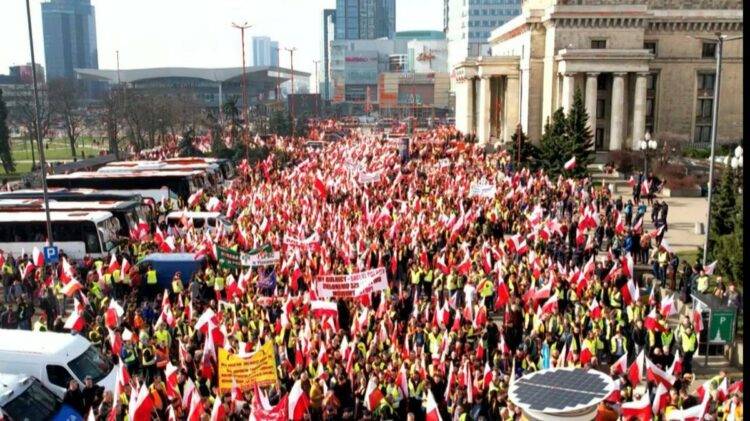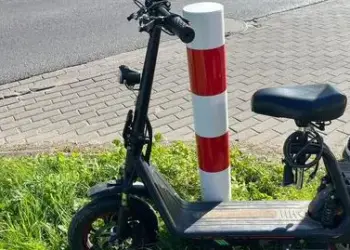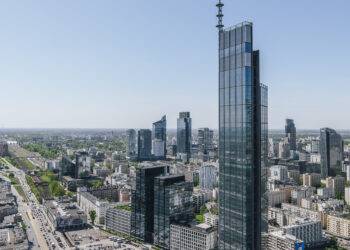The streets of Warsaw witnessed a significant gathering of Poland’s agricultural community as approximately 10,000 farmers concluded their peaceful protest on Tuesday evening. The demonstration, organized to express discontent with the European Union’s Green Deal and the influx of cheap agricultural products from Ukraine, ended without any major incidents, according to city officials, and is part of a series of major protest across the EU.
Farmers from across the country converged on the capital to demand the government take definitive action against policies they believe threaten the viability of their livelihoods. Key issues include the EU’s Green Deal, perceived as detrimental to the agricultural sector’s profitability, and calls for tighter border controls to stem the flow of inexpensive Ukrainian produce into the Polish market.
This protest comes amidst a month-long series of demonstrations against the European Union’s (EU) agricultural policies and the influx of agricultural products from Ukraine.
The farmers have several key concerns. Firstly, they object to the EU’s “Green Deal” initiatives aimed at combating climate change. They argue that the associated regulations are too costly and impractical for them to implement on their farms. Secondly, they believe that the import of Ukrainian agricultural goods, particularly grain, unfairly undercuts the prices they receive for their own produce.
The Polish government has acknowledged the farmers’ concerns. Prime Minister Donald Tusk, while attending a meeting in Prague, expressed both solidarity with the farmers and the need to balance supporting Ukraine with addressing the negative impact on Polish agriculture. He stressed the importance of working with the EU to find solutions that address the farmers’ demands while upholding Poland’s commitments to both the environment and its neighbor.
Some observers speculate that the ongoing farmer protest could indirectly benefit or be inspired by Russia. They argue that the social and political unrest caused by these protests could weaken Poland’s and EU’s internal unity, potentially disrupting their consistent and staunch support of Ukraine against Russian aggression. Additionally, the protests might hinder the flow of resources and support to Ukraine as border blockades continue. This perceived weakening of Ukrainian allies, especially such a key ally as Poland, could be seen as advantageous to Russia within the broader context of the war.
Representatives of the protesting farmers met with Jan Grabiec, the head of the Prime Minister’s Chancellery, and Szymon Hołownia, the Marshal of the Sejm, to discuss their concerns. Although the meetings concluded with promises of further dialogue, protest leaders announced plans for additional demonstrations, citing a lack of concrete solutions to their grievances.
The protest, which began at noon in Plac Defilad, was marked by a display of unity and determination. Participants sang the national anthem, set off firecrackers, and carried banners with messages such as “We, the farmers – free Poles say stop to green madness,” showcasing a strong sense of community and purpose.
Despite the peaceful conclusion of Tuesday’s protest, the agricultural community’s leaders have vowed to continue their demonstrations, with another major event planned for March 6. Their resolve underscores the deep-rooted concerns among farmers about the future of agriculture in Poland and the broader EU policy landscape.
The farmers’ protest in Warsaw is part of a nationwide movement challenging the EU’s agricultural policies and the impact of Ukrainian imports on the Polish market. These demonstrations highlight the tension between environmental initiatives like the European Green Deal and the immediate economic concerns of the agricultural sector.


















